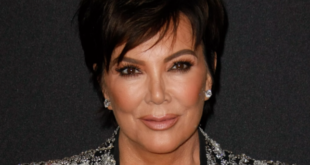I’m 45 years old, but I didn’t have my first orgasm until three years ago. It wasn’t for lack of trying, either. I was 19 when I lost my virginity. It was the guy’s first time, too, and afterward, I couldn’t help but think, “This is sex? What a disappointment.” Unfortunately, things didn’t get much better in my twenties and thirties.
I fooled around with a couple of other guys and had sex with another, but it did nothing for me. I came away from sleeping with that second guy saying, “I’m not doing this again; I’m saving myself for my husband.” And I stuck to that—my hubby and I didn’t have intercourse until we were married, when I was 36.
Scott (not his real name) and I underwent premarital counseling, and one of the guidelines I set for our relationship was that we would have sex three times a week, even though I didn’t expect to orgasm. After two and a-half years of dating and fooling around, I knew that I enjoyed intimacy and touching and hugging. But it was never enough to make me climax, even though Scott would say, “Tell me what you like” and ask, “Does this feel good?”
I’d read all these romance novels, and everyone was talking about how great sex is. But for me, it was just another chore on a chart of a million things to do every day. I thought, “There must be something more to this.”
I knew there had to be an answer out there.
When I asked my gynecologist what I could do, he suggested masturbating. I thought, “Are you kidding me?” Around the same time, I saw an ad in a business journal for The Medical Center for Female Sexuality that said, “Can’t have an orgasm? Don’t know what an orgasm is? Sexually unsatisfied?” It really spoke to me. So I started seeing a doctor at the Center in January of 2011, right after I had finished nursing my second child (I was 41 at the time).
The doctor did a lot of bloodwork on me and said I had very low testosterone levels—a significantly low level, in fact—and that I’d need more to get my body more interested in sex.
I started hormone treatments and was also told to watch porn, so I got an iPad that my husband encoded so nobody else could use it. He was always so patient, loving, and supportive throughout the whole process. With the medical aspect covered and some new visual stimulation, I stuck with treatment for a year, but I still never crossed the finish line. With little kids in the house, intimacy became more planned and less spontaneous. There were a few times my husband and I went weeks without sex (but usually my husband would remind me if we’d gone five or six days!).
Then, I bought a couple of vibrators and start practicing with them. Beginning that second year of treatment, we also changed the approach, and I was injected with time-release capsules that had a much stronger dosage of testosterone.
All I remember is, “Now I know what I’ve been missing!” It was more powerful than I’d expected; it felt like an electric current was going through my body—extremely pleasurable. It was a huge release.
Eventually, the side effects of the testosterone became too much for me. I had a lot of facial hair, and it got to the point where I was thinking about sex all the time (although my husband was of course loving it). So we decided to stop with the hormones because, at that point, I was having regular orgasms using a plug-in vibrator (which is more powerful than the battery-operated versions).
I’ve actually bought the same vibrator for a friend of a friend to try to help her and recommended she speak to her doctor about her testosterone levels. It’s worth looking into for anyone who has trouble orgasming (although I hope it goes without saying that you should consult your doctor before starting any sort of hormone treatment since it of course comes with side effects).
Trying unsuccessfully to experience an orgasm for 23 years is kind of like someone telling you how great chocolate is. They can describe it, but until you eat it for yourself, you really don’t know. I’m so glad I finally got to taste it for myself.
 Quelins – Relationship, Sex, Marriage and Health News around the world Quelins Blog is an online magazine about relationships, love, information about marriage, partnerships and issues patterning to all that.
Quelins – Relationship, Sex, Marriage and Health News around the world Quelins Blog is an online magazine about relationships, love, information about marriage, partnerships and issues patterning to all that.




